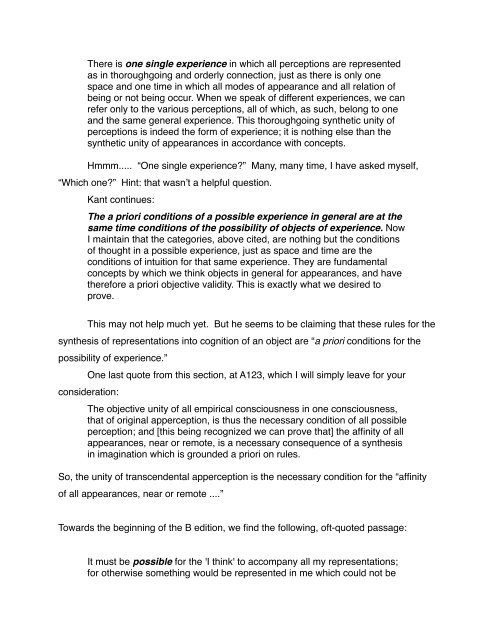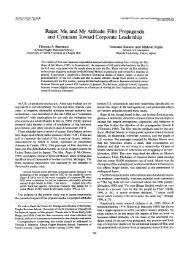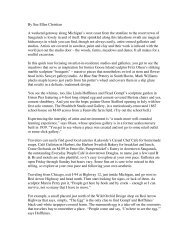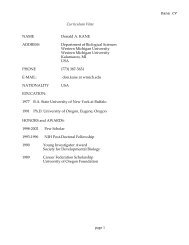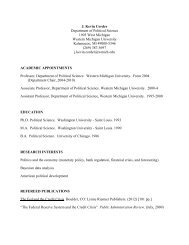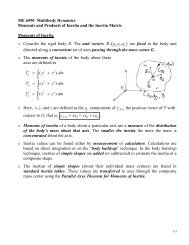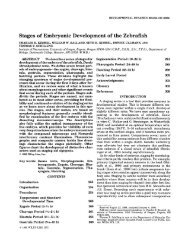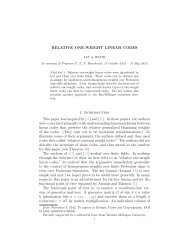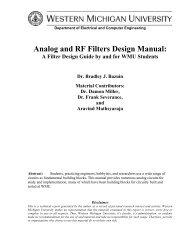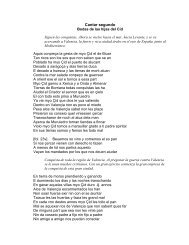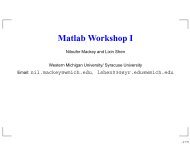Passages (mostly) from A Deduction
Passages (mostly) from A Deduction
Passages (mostly) from A Deduction
Create successful ePaper yourself
Turn your PDF publications into a flip-book with our unique Google optimized e-Paper software.
There is one single experience in which all perceptions are represented<br />
as in thoroughgoing and orderly connection, just as there is only one<br />
space and one time in which all modes of appearance and all relation of<br />
being or not being occur. When we speak of different experiences, we can<br />
refer only to the various perceptions, all of which, as such, belong to one<br />
and the same general experience. This thoroughgoing synthetic unity of<br />
perceptions is indeed the form of experience; it is nothing else than the<br />
synthetic unity of appearances in accordance with concepts.<br />
! Hmmm..... “One single experience?” Many, many time, I have asked myself,<br />
“Which one?” Hint: that wasn’t a helpful question.<br />
! Kant continues:<br />
!<br />
The a priori conditions of a possible experience in general are at the<br />
same time conditions of the possibility of objects of experience. Now<br />
I maintain that the categories, above cited, are nothing but the conditions<br />
of thought in a possible experience, just as space and time are the<br />
conditions of intuition for that same experience. They are fundamental<br />
concepts by which we think objects in general for appearances, and have<br />
therefore a priori objective validity. This is exactly what we desired to<br />
prove.<br />
! This may not help much yet. But he seems to be claiming that these rules for the<br />
synthesis of representations into cognition of an object are “a priori conditions for the<br />
possibility of experience.”<br />
! One last quote <strong>from</strong> this section, at A123, which I will simply leave for your<br />
consideration:<br />
The objective unity of all empirical consciousness in one consciousness,<br />
that of original apperception, is thus the necessary condition of all possible<br />
perception; and [this being recognized we can prove that] the affinity of all<br />
appearances, near or remote, is a necessary consequence of a synthesis<br />
in imagination which is grounded a priori on rules.<br />
So, the unity of transcendental apperception is the necessary condition for the “affinity<br />
of all appearances, near or remote ....”<br />
Towards the beginning of the B edition, we find the following, oft-quoted passage:<br />
It must be possible for the 'I think' to accompany all my representations;<br />
for otherwise something would be represented in me which could not be


